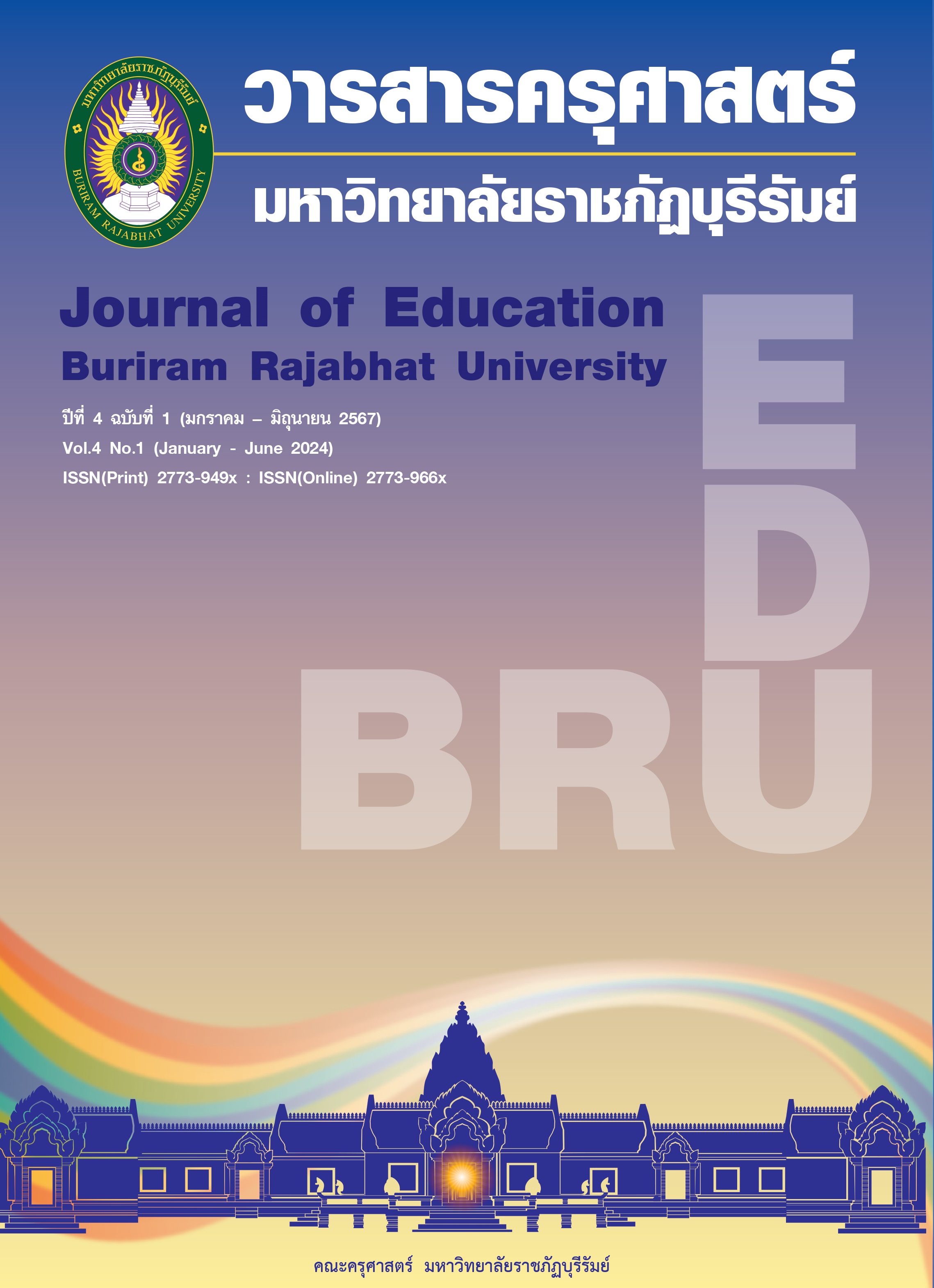Development of Learning Progress in a Mathematics Course , Entitled Multiplication by the Game-Based for Grade 4 Students
Main Article Content
Abstract
This research aimed to: 1) develop the learning progress in mathematics specifically multiplication, using game-based method for Grade 4 Students, and 2) study the students’ satisfaction towards the learning management with the game-based. The research samples included 20 Grade 4 Students in a classroom, 10 students selected by the purposive sampling with the criterion selection from the students who did not pass the learning achievement of 50%. The research instruments contained the observation form and the learning management plans with the game-based. The data were analyzed by the percentage. The research findings exposed that: 1) the students had the learning progress development in the mathematics course, entitled multiplication with the game-based for Grade 4 Students with the mean score before learning, equaled 34.00 percent, and the mean score after learning, equaled 79.50 percent. The mean score after learning revealed higher than the mean score before learning, equaled 45.50. and 2) the students’ satisfaction level towards the learning management was in very high level ( = 4.23 S.D.=0.71).
Downloads
Article Details
บทความที่ได้รับการตีพิมพ์ลิขสิทธิ์เป็นของวารสารครุศาสตร์ มหาวิทยาลัยราชภัฏบุรีรัมย์ อนุญาตให้เผยแพร่เพื่อการศึกษาและวิจัย ในวงการวิชาการ ไม่อนุญาตการใช้ประโยชน์เพื่อการแสวงหากำไร
ข้อความที่ปรากฏในบทความเป็นความคิดเห็นส่วนตัวของผู้แต่ง ซึ่งวารสารครุศาสตร์ มหาวิทยาลัยราชภัฏบุรีรัมย์ ได้ประเมินคุณภาพตามหลักวิชาการ ผลกระทบอันเกิดจากความคิดเห็นของผู้แต่งเป็นความรับผิดชอบของผู้แต่งเอง
References
สุนารี นวลจันทร์. (2562). ผลสัมฤทธิ์ทางการเรียนวิชาคณิตศาสตร์และความสามารถในการทํางานกลุ่ม เรื่อง ระบบจำนวนจริง โดยการเรียนแบบร่วมมือเทคนิค STAD ร่วมกับเกมคณิตศาสตร์ของนักเรียนชั้นมัธยมศึกษาปีที่ 4 (ปริญญานิพนธ์ ปริญญาการศึกษามหาบัณฑิต). สงขลา, มหาวิทยาลัยทักษิณ.
Al-Azawi, R., Al-Faliti, F., & Al-Blushi, M. (2016). Educational Gamification vs. Game Based Learning: Comparative Study. International Journal of Innovation, Management and Technology, 7(4), 132-136.
Chen, Y. C. (2017). Empirical Study on The Effect of Digital Game-Based Instruction on Students’ Learning Motivation and Achievement. Eurasia Journal of Mathematics, Science and Technology Education, 13(7), 3177-3187.
Hartt, M., Hosseini, H., & Mostafapour, M. (2020). Game on: Exploring the Effectiveness of Game-Based Learning. Planning Practice & Research, 35(5), 589-604.
Hsu, T. C., Chang, S. C., & Hung, Y. T. (2018). How to Learn and How to Teach Computational Thinking: Suggestions Based on a Review of the Literature. Computers & Education, 126, 296-310.
Josiek, S., Schleier, S., Steindorf, T., Wittrin, R., Heinzig, M., Roschke, C., ... & Ritter, M. (2021, June). Game-Based Learning using the Example of Finanzmars. In 2020 6th IEEE Congress on Information Science and Technology (CiSt) (pp. 7-14). IEEE.
Law, B. (2016, October). Puzzle Games: a Metaphor for Computational Thinking. In European Conference on Games Based Learning (p. 344). Academic Conferences International Limited.
Prez, M. D. M., Duque, A. G., & Garca, L. F. (2018). Game-Based Learning: Increasing the Logical-Mathematical, Naturalistic, and Linguistic Learning Levels of Primary School Students. Journal of New Approaches in Educational Research (NAER Journal), 7(1), 31-39.


